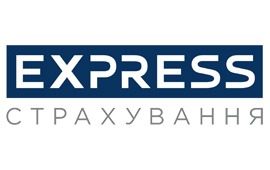
Ukraine continues to strengthen its position in the European transit space. Thus, in the second quarter of 2025, the State Customs Service of Ukraine issued almost 34 thousand transit declarations under the common transit procedure (NCTS). This is 8 thousand more than in the previous quarter and 9 thousand more than in the second quarter of 2024.
This is the highest quarterly increase since Ukraine joined the Convention on a Common Transit Procedure.
More than 23 thousand movements initiated by Ukrainian customs have been successfully completed in the countries party to the Convention. In turn, 10.7 thousand transit movements initiated in other countries were completed in Ukraine, which is almost 50% more than in the previous quarter.
In total, since the start of the international application of the joint transit procedure on October 1, 2022, the State Customs Service has issued almost 196 thousand declarations, of which 149 thousand were issued as a customs office of departure and 47 thousand as a customs office of destination.
In addition, domestic companies are actively using Ukrainian general guarantees in T1 declarations to move transit goods in other countries party to the Convention. For example, in the second quarter of 2025, general guarantees were used in almost 106 thousand T1 declarations transported through the customs territory of the European Union (since January 1, 2025 – more than 183 thousand such declarations).
Regarding guarantees under the common transit procedure, in the second quarter of 2025, the State Customs Service registered 28 general guarantees in the NCTS guarantee management system. As of the beginning of July 2025, 94 general guarantees totaling more than EUR 320 million and 4,947 individual guarantees totaling EUR 218.45 million were in force.
Such dynamics confirms the growth of business confidence in the common transit procedure and demonstrates an increase in the number of foreign economic operators seeking to work in accordance with EU standards.

Ukraine plans to jointly manufacture lung and breast cancer drugs with Swiss pharmaceutical company Roche, Mykhailo Radutsky, chairman of the parliamentary committee on national health, medical care and medical insurance, said on his Facebook page, as part of the URC-2025 Ukraine Recovery Conference on Thursday.
“For several years, the President’s team has been negotiating with international pharmaceutical companies to localize production in Ukraine. The state enterprise “Medical Procurement of Ukraine” and Roche have signed an investment agreement to create capacities for the production of innovative drugs for lung and breast cancer in Ukraine,” he said.
Radutsky clarified that Roche will supply medicines in bulk, and their packaging, final packaging and labeling will be carried out directly in Ukraine, at the production facilities of the Ministry of Healthcare’s Medsnabzhenie branch.
He noted that in order to launch the project, it is necessary to obtain a GMP license for production and train staff.
Patients will be able to receive the first medicines under the project in 2027.
According to the State Enterprise (MoH), these are currently medicines for the two most common types of cancer – the drug for non-small cell lung cancer atezolizumab (Tecentrik) and pertuzumab + trastuzumab (Fesgo), which is used to treat breast cancer.

On July 14, the price of Bitcoin exceeded $120,000 for the first time in history, reaching a peak of $122,571. After that, the price stabilized at around $121,950. The daily growth was about 2–3%, and since the beginning of the year — almost 29%. Analysts attribute the dynamics to a massive influx of capital into Bitcoin-based exchange-traded funds (BTC-ETFs) — over $1 billion daily — and favorable expectations regarding regulation. This refers to the active debate surrounding the Genius Act bill and discussions during Crypto Week.
Institutional players, including giants such as BlackRock and Bitwise, are showing unprecedented activity: from January to July, net inflows into cryptocurrency products exceeded $14.4 billion. Bitcoin is increasingly being treated as a digital analogue of gold — a “store of strength” in times of financial volatility. Technical analysis indicates potential growth to $125,000–131,000 in the coming weeks. If the trend remains stable, the price could reach $200,000–250,000 by the end of the year.
Ethereum is not far behind. ETH updated its five-month high, rising to $3,060. Open interest in Ethereum futures reached $14.25 billion, and ETF inflows exceeded $1 billion. AI-based predictive models see ETH in the $3,000–3,200 range throughout July.
The altcoin market is also showing positive dynamics. XRP rose above $2.80, an increase of 6–7% over the week. The technical picture shows a breakout from the falling wedge formation, opening the way to $3 and possibly $4.35 as early as July. Solana is trading at $160–167, with potential to reach $186–200, while Cardano (ADA) is near $0.725 and showing an upward trend to $0.77. Investors are showing growing interest in assets such as CELO and DOGE, as well as new staking ETFs, particularly those based on Solana.
The total capitalization of the crypto market is approaching $3.8 trillion. Despite geopolitical instability, the market is showing a clear bullish trend. Central bank digital initiatives, including digital currency pilots (CBDCs) in Australia, are creating a favorable backdrop for further growth in crypto assets. Against this backdrop, Bitcoin is increasingly consolidating its status as a reserve asset, prompting large institutions and companies to withdraw significant amounts from traditional assets in favor of digital ones.

“Ukrzaliznytsia announces auctions for the sale of crushed stone. The first auctions for 72.5 thousand tons of crushed stone will be held on July 24-25 on the Prozorro Sales website, the company’s press service reports.
The release specifies that the sale of crushed stone became possible due to the decision of the Cabinet of Ministers, which simplified the procedure for disposing of property for Ukrzaliznytsia and granted permission to sell it.
The company has already held a meeting with the business to discuss current issues of the crushed stone market and the prospects for selling through electronic auctions.
The auctions will be based on the English auction principle, and Ukrzaliznytsia expects active competition among the participants.
In the future, the company plans to sell almost 1.3 million tons of crushed stone through separate lots.

In January-June 2025, Express Insurance (Kyiv) collected insurance premiums in the amount of UAH 560.9 million, which is 32% more than in the same period of 2024, according to the insurer’s website.
Premiums under hull insurance contracts for this period amounted to UAH 380.4 million, which is UAH 44.9 million, or 13.4%, more than in January-June 2024, for MTPL – UAH 167.7 million (+90.6%), for other types of insurance – UAH 12.7 million.
The company reports that in January-June 2025, the total amount of insurance claims for insured events amounted to UAH 223 million. This includes UAH 176.3 million in payments to motor hull insurance customers and UAH 43.3 million to victims of motor TPL insurance.
As reported, as of March 31, 2025, the assets of Express Insurance amounted to UAH 940.6 million, which is UAH 149.1 million more than in 2024, their share in cash amounted to 89%, which ensures the company’s operational ability to pay compensation for insured events.
Express Insurance was founded in 2008 and is part of the UkrAVTO group of companies. The company specializes in automobile insurance. The consistently high speed of claims settlement in the IC is ensured by optimal interaction with partner service stations.
Since April 2012, Express Insurance has been an associate member of the Motor Transport Insurance Bureau of Ukraine.